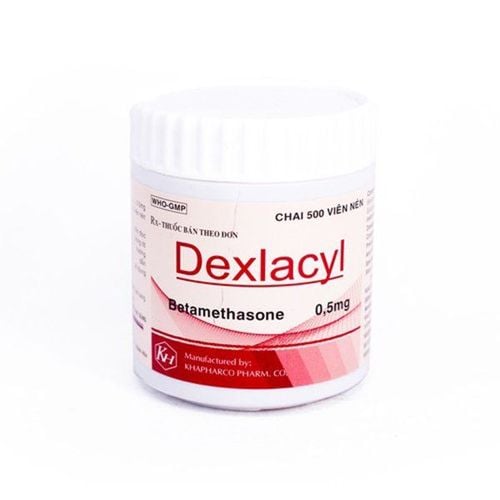This is an automatically translated article.
Rosemary is a green shrub with needle-like leaves and a woody aroma. Although best known as a food spice, rosemary is also one of the most popular medicinal and medicinal plants worldwide. Rosemary essential oil is extracted and sold in small bottles and has been used medicinally since ancient times.
1.Improve brain function
In ancient Greece and Rome, rosemary was said to have the ability to enhance memory. Research shows that inhaling rosemary oil helps prevent the breakdown of acetylcholine, a brain chemical that plays an important role in thinking, concentration, and memory.
Research shows that when 20 young adults are asked math questions in a small room diffused with rosemary oil, the speed and accuracy of answers increases in direct proportion to the time the oil is diffused. canopy.
Another study found that inhaling rosemary and other essential oils could improve brain function in older adults with dementia, including those with Alzheimer's disease.
2.Strengthen hair growth

Dầu hương thảo giúp tăng cường mọc tóc
One of the most common types of hair loss is androgenetic alopecia, also known as male pattern baldness, although it can also affect women. Rosemary oil treats androgenetic hair loss by preventing testosterone from attacking the hair follicles.
When men with androgenetic hair loss diluted rosemary oil and applied it to the scalp twice daily for six months, they noticed the same increase in hair thickness as those using minoxidil (Rogaine). ), a popular hair regrowth remedy.
Also, people using rosemary oil reported less scalp itching than when using minoxidil. Another study indicates that rosemary oil can combat hair loss, a condition that affects half of the population under the age of 21 and about 20% of those over 40.
When people with hair loss applied a small amount of rosemary essential oil blend to their scalp every day for seven months, 44% of users showed an improvement in hair loss compared to only 15% in the control group, who Use neutral jojoba and grapefruit oils.
3. Pain relief
In folk medicine, rosemary is used as a mild pain reliever
In a two-week study, people recovering from a stroke with shoulder pain were given a blend of rosemary oil Herbal medicine combined with acupressure for 20 minutes, twice daily showed an analgesic effect of 30%.
Those who only received acupressure without oil had a 15% reduction in pain. Additionally, one animal study determined that rosemary oil was slightly more effective at reducing pain than acetaminophen, a popular over-the-counter pain reliever.
4.Reduce stress

Hít dầu hương thảo trong 5 phút có thể giảm căng thẳng
One study found that when nursing students inhaled rosemary oil from an inhaler before and during a trial, their pulse dropped by about 9% - while no significant change occurred when not using the inhaler. Use rosemary oil. In addition, when 22 young adults sniffed rosemary oil for 5 minutes, their saliva had 23% lower levels of the stress hormone cortisol. Increased cortisol levels can suppress the immune system, causing insomnia and mood swings.
5.Increase blood flow
Poor circulation is a common condition. If a client experiences cold fingers and toes, even in relatively warm ambient temperatures, rosemary oil may be a solution.
In one study, a woman with Raynaud's disease, impaired circulation who massaged her hands with a blend of rosemary oil, found that this oil warmed her fingers more than another neutral oil. Rosemary oil can aid blood circulation by widening blood vessels, making it easier for blood to flow to your fingers and toes.
6.Reduce Arthritis
Preliminary evidence suggests that rosemary oil may help reduce tissue inflammation that can lead to swelling, pain, and stiffness. Rosemary oil helps by blocking the migration of white blood cells to damaged tissues to release inflammatory chemicals.
When people with rheumatoid arthritis received a 15-minute knee massage using a rosemary oil blend three times per week, they experienced a 50% reduction in knee pain in two weeks, compared with a 12% reduction in those with rheumatoid arthritis. non-oil users.

Viêm khớp dạng thấp nên mát-xa với hỗn hợp dầu hương thảo ba lần mỗi tuần
7.Other effects
Anti-cancer: Rosemary oil has antioxidant and anti-inflammatory effects, which test-tube studies have shown to fight cancer cells Liver and digestive system support: Animal studies indicated that rosemary oil can stimulate the release of bile, which is important in the digestion of fats and activates antioxidant defense mechanisms thereby protecting the liver. Preventing food poisoning : Rosemary oil may help inhibits the growth of certain strains of bacteria that cause food poisoning. Reduce antibiotic side effects: Rosemary and other essential oils may increase the effectiveness of some antibiotics. This could allow users to use low doses and thereby reduce side effects Antibiotic resistance: Rosemary and other essential oils can weaken the cell walls of antibiotic-resistant bacteria
8.Usage
The simplest way to inhale rosemary oil is to open the container and inhale it directly or you can put a few drops on a cloth or tissue and hold it close to your nose. Many people use aromatherapy diffusers to enrich the surrounding air.
Rosemary and other essential oils can be easily absorbed into the bloodstream when you apply it to the skin. After diluting rosemary oil, users can apply the oil to the bottom of their feet or desired body part to reduce pain and inflammation while improving blood flow.
Users should take care to avoid applying rosemary and other essential oils to damaged skin or near sensitive areas, such as the eyes. At the same time, it should not be used by pregnant women, people with epilepsy or high blood pressure.
Please dial HOTLINE for more information or register for an appointment HERE. Download MyVinmec app to make appointments faster and to manage your bookings easily.
Reference article: healthline.com












